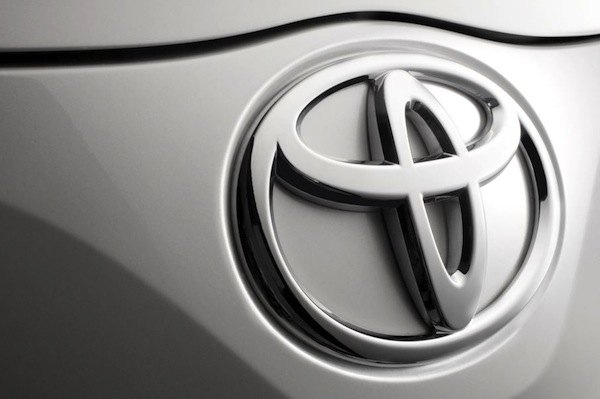TTAC News Round-Up: Even When Volkswagen Group Wins, It Loses

Volkswagen’s expensive diesel emissions scandal has forced cost cutting on anything that isn’t electric and its rally team is next on the chopping block. Quitting while ahead is ideal but abandoning a program due to financial woes and public shame after a hot streak doesn’t exactly smack of going out on top.
That, Toyota invents a box that allows anyone to use your car, Tesla’s zero-emission credits may soon be worth less, and Ford makes peace with its Canadian autoworkers at the buzzer… after the break!
VW leaves WRC after four years of victory
Echoing Audi’s exodus from the World Endurance Championship, Volkswagen will be leaving World Rally Championship at the end of the 2016 season. Autosport confirmed the decision was made at VW’s headquarters in Wolfsburg, Germany earlier today.
The decision will drastically alter the WRC landscape by removing the commanding Polo R from the mix and making Sébastien Ogier a free agent. Ogier and VW have dominated the drivers’ and manufacturers’ championships since 2013, and both were expected to remain highly competitive with the all-new 2017 specification Polo R WRC developed for the next season.
VW has made no official comment on the decision as of yet. However, when it does, Jari-Matti Latvala, Andreas Mikkelsen, and Mr. Ogier will all need something to do next year.
Toyota invented a box that lets anyone get into your car
Jumping on the ride-sharing bandwagon, The Verge reports that Toyota has come up with a Bluetooth device that allows someone to unlock and start the engine of a car using just their smartphone. If you’re unfamiliar with the concept, you probably don’t live in a major city. Vehicle-sharing companies like ZipCar and Cars2Go have been so successful in urban areas that General Motors launched its own car-sharing service called Maven, BMW has ReachNow in Seattle, and Ford has GoDrive in London.
Toyota’s little gimmick will have its initial run in San Francisco. The Verge explains the process:
Here’s how it will work: a vehicle owner who wants to make some money on the side lending their car to other people can install the Smart Key Box on their dashboard, no modification needed. The car-share customer is sent a code via an app to access the box. When the smartphone is brought near the vehicle, the codes are authenticated via Bluetooth — Toyota calls it a “handshake” — similar to regular smart key. The time and period when the user can access the Smart Key Box is set and managed by Toyota, based on the vehicle reservation.
Tesla’s money-making zero-emission credits have peaked in value
Elon Musk has complained that his company’s $139 million in zero-emission credits would be worth more if California enforced stricter regulations. However, Bloomberg is reporting that the staff of the California Air Resources Board isn’t planning to change the state’s emissions targets before 2025.
From Bloomberg:
The extension of the status quo also would come as a blow for Musk, who funded Tesla to help create what he has called “a solar-electric economy.” He wants stricter zero-emissions standards that would boost demand for electric vehicles, including Tesla’s, and force other automakers to sell more of these models instead of using credits to meet their goals.
The board’s “credit mandate is incredibly weak and needs to be fixed,” Musk, Tesla’s chief executive officer, said on an Oct. 26 conference call to discuss earnings results with analysts. They “really should be doing more; it is unfortunate that they are not.”
CARB says there’s currently an oversupply of credits in California, and if it continues, zero-emission vehicles, or ZEVs, could account for just 6 percent of sales by 2025, compared with the board’s earlier projection of 15.4 percent. Tesla sold 80,227 of those credits over the 11 months through August, which accounted for 86 percent of the total. No wonder Musk is making such a fuss over it.
Unifor reaches a tentative deal with Ford
Ford reached a tentative agreement with Canadian labor union Unifor early today. The Windsor Star says the deal incorporates a $700 million ($522 million U.S.) investment commitment in Canadian factories, the bulk of which will be going toward Windsor, Ontario engine operations.
Heavily influenced by the recent contracts struck with General Motors and Fiat Chrysler Automobiles, the deal includes the introduction of an engine program at the Essex engine plant in Windsor. Unifor President Jerry Dias says the engines will be featured on some of Ford’s top-selling vehicles. The remaining investment will go toward new vehicle assembly in Oakville, Ontario.
From The Windsor Star:
The rest will be spent on a “refresh” of vehicles assembled at the Oakville Assembly Plant, which builds the Ford Edge SUV along with Lincoln MKX and MKT. The plant also builds the Ford Flex, but that vehicle will be discontinued in 2020, said Bob Scott, vice-chair of the master bargaining committee said.
Unifor has made securing product and investment commitments from the Big Three a top priority in recent negotiations. Combining the tentative Ford agreement with the GM and FCA contracts, the Detroit Three automakers have committed well over a billion dollars to Canadian operations and ensured job security for thousands of workers. Those workers will get a $6,000 signing bonus, a 4 percent raise over the life of the deal for legacy workers, and new hires will receive wage increases each year under the 10-year grow-in period — which Ford managed to keep in place.
Union leaders declined to discuss additional details publicly before further talks with union members have taken place. Ratification votes will begin begin on Saturday and conclude on Sunday.
[Images: Volkswagen Motorsport; Toyota; Tesla; Ford Motor Company]

A staunch consumer advocate tracking industry trends and regulation. Before joining TTAC, Matt spent a decade working for marketing and research firms based in NYC. Clients included several of the world’s largest automakers, global tire brands, and aftermarket part suppliers. Dissatisfied with the corporate world and resentful of having to wear suits everyday, he pivoted to writing about cars. Since then, that man has become an ardent supporter of the right-to-repair movement, been interviewed on the auto industry by national radio broadcasts, driven more rental cars than anyone ever should, participated in amateur rallying events, and received the requisite minimum training as sanctioned by the SCCA. Handy with a wrench, Matt grew up surrounded by Detroit auto workers and managed to get a pizza delivery job before he was legally eligible. He later found himself driving box trucks through Manhattan, guaranteeing future sympathy for actual truckers. He continues to conduct research pertaining to the automotive sector as an independent contractor and has since moved back to his native Michigan, closer to where the cars are born. A contrarian, Matt claims to prefer understeer — stating that front and all-wheel drive vehicles cater best to his driving style.
More by Matt Posky
Latest Car Reviews
Read moreLatest Product Reviews
Read moreRecent Comments
- Jeff Tesla should have never committed to the Cybertruck. A better choice would have been an inexpensive EV compact pickup which at 30k or below would sell.
- AZFelix At felony level speeds the HOV lane transition from southbound SR 5 1 to eastbound I-10 in Phoenix mimics driving the curves, dip, and rise of Eau Rouge online.
- Doug brockman Zero interest in EVs. Right now my Tundra with 38 gallon tank will roll about 500 miles before refueling which takes about five minutes.
- Jpolicke They sold these with manual trans? Wow, this may be the only one left.
- SilverHawk Growing up in California, I ran the Corkscrew in a number of different low power sports cars, but nothing really fast. I had a real blast doing it in a 66 Barracuda Formula S that I could barely handle through the curves. The car had more skill than I had. Quite an experience.






































Comments
Join the conversation
"Volkswagen will be leaving World Rally Championship at the end of the 2016 season." VW needs all the good publicity they can get, so you'd think rather than 86-ing their racing teams, they'd spend more to promote/publicize them. On sharing Toyotas... Could the few bucks made on the side by sharing your new car really cover the depreciation and wear and tear caused by the apathetic hoards renting your whip for 15 bucks a pop?
"CARB says there’s currently an oversupply of credits in California, and if it continues, zero-emission vehicles, or ZEVs, could account for just 6 percent of sales by 2025, compared with the board’s earlier projection of 15.4 percent." CARB is a victim of its own over-reaching; they've designed a self-defeating credit system that shouldn't even exist. And now they'll have to find *another* way to mandate more ZEVs, while consumers buy more trucks than ever. http://www.bloomberg.com/news/articles/2016-10-31/musk-s-sale-of-clean-air-credits-may-have-marked-peak-for-market